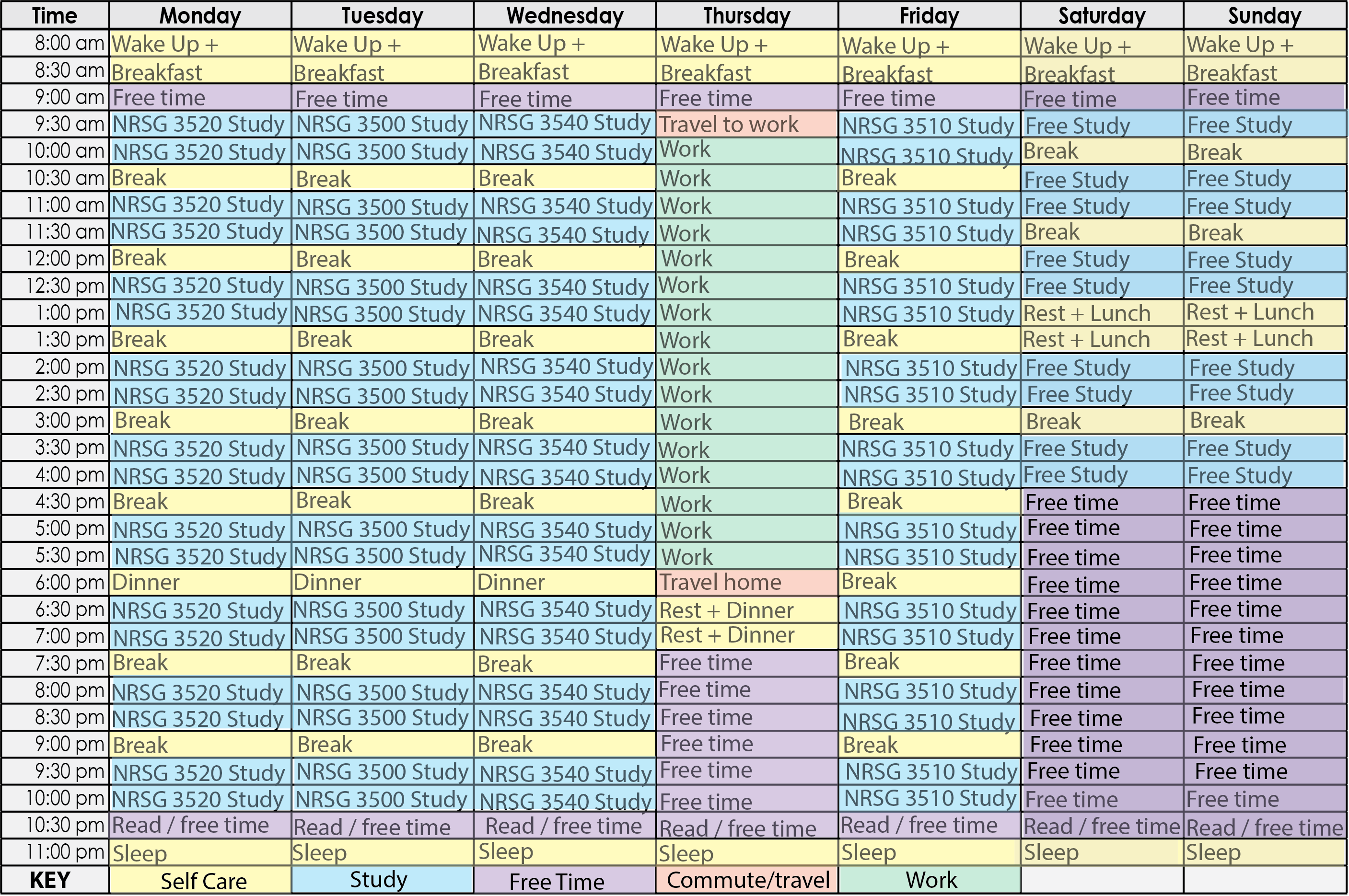13 Develop a Weekly Schedule That Works
Your next step is to create a weekly schedule. This will include your class times for face to face or blended classes, work commitments, volunteer roles, practicum placements, as well as any other regular events in your week. A weekly schedule is a good tool to evaluate whether your time use allows you to meet your overall goals. Do you have enough time for study? Is there time to maintain a healthy lifestyle? Analyze the example student schedule below. What do you notice about how this student has planned their week?

Download the weekly schedule template here. The following principles will guide you as you create your weekly schedule:
- Record your regular weekly commitments on the schedule template. This includes any face to face or blended class times.
- Designate regular study blocks for each of your classes. Remember that university courses typically require at least 9-12 hours of weekly study. Remember that it is more effective to study for multiple, shorter blocks of time during the week than to plan for one extended study block. Shorter study periods will allow for greater focus. Regular review will help you retain information well.
- Record meal times, family times, laundry times, etc.
- Record all regularly scheduled personal activities such as meetings, employment and athletics.
- Record any special activities you need to do or want to do on a regular basis.
- Schedule to start your study period with the courses you like least or that you’re not doing well in. Try to study the same subjects at the same time each study day. Although this seems to be a mechanical way of scheduling, you will find that such a routine can help you develop a pattern for efficient and effective learning.
- Schedule a weekly review (WR) for each course. Do it at the end of the week if possible. This weekly review gives you an opportunity to go over the past week’s notes along with the reading assignments to see what you have been learning in the past week during class and study time for each course. You can also look ahead to plan the next week and determine how much reading you need to do, what projects are due, and if any tests are scheduled.
- Keep open some time for daily physical activity. Remember, research indicates that regular exercise will not only give you a general sense of well-being, but can reduce tension and help you accomplish a tough class, study, and work schedule.
- Label some empty blocks of time as OPEN for academic or personal needs.
- Schedule some time during Friday, Saturday, and Sunday for you to play, relax, or do whatever you want to do. This is your reward for sticking to your schedule. In addition, you’ll enjoy your free time more. Because it is scheduled you do not need to feel guilty.
Try it!
Download the weekly schedule template. Create your weekly schedule based on the principles you have explored in this chapter. Follow your schedule for a two week period. Then, evaluate and make adjustments.

